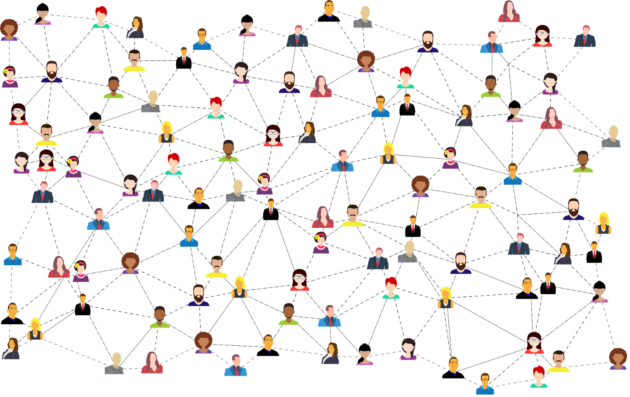James Davidson
In today’s setting around the West, there is only one conception of freedom: “do what you want, as long as it doesn’t infringe on anyone else’s rights”. This definition sounds compelling, in fact, it sounds liberating. Under it one can do, be or say anything as long as the rights of others are not infringed. The individual knows what’s best for themselves, so why shouldn’t they be liberated by such a capacity?
Let me attempt to convince you why this definition of freedom is not only destructive to the individual living within it but to society as a whole.
The first thing we need to understand is that culture is the moulding tool of the individual. Culture in essence surrounds the individuals and guides them in how to conduct their lives and what values to uphold. Because culture heavily influences these two fundamental aspects of our lives, it is something to be taken seriously.
Nothing Exists In Isolation
When thinking about your own actions it’s important to realise that nothing exists in isolation. This is true when interacting with other people, animals or objects. And also true in the privacy of your own space. Two theories explain this, the butterfly effect and the ripple effect.
The butterfly effect is the observation that ‘there is a consequence to every action, large or small’. The ripple effect on the other hand is the theory that ‘consequences of actions have a gradually spreading effect or influence.’ Like the ripple from a stone being thrown into a pond. Or a person in a network spreading influence outward, as seen in the image below.

Understanding these two concepts is one of the foundational pillars to understand why the liberal definition of freedom, ‘do what you want as long as it doesn’t infringe on others’ rights’, is destructive.
A change in culture can be the difference between the population flourishing or reaching a bottomless pit of depression.
With culture being the determinant factor in our quality of life, one would hope that those who create the culture do it in the interests of the population. However, in a liberal setting, this has been shown to not be the case.
Instead of community, we now have addiction.
Instead of valuing ourselves and others by character, we now have consumerism.
Instead of positive role models, we now have degenerates.
Because liberalism’s only limit to freedom is infringement of rights, it neglects the reality that actions which don’t infringe others rights can be detrimental to the individual or group without them knowing that.
To give an example, the negative consequences of long term social media use has been widely understood and acknowledged within the mental health research community. One of these negative aspects is the high levels of addiction to social media.
Because most social media companies’ business models rely on user engagement, they’re highly incentivised to cause addiction. This is why, through the use of psychological methods and extensive testing, these companies continue to create an optimised product designed specifically to increase the attention you give it.
Thus, in a liberal society like we live in today, under the definition of freedom I laid out before, these tactics are not only used frequently but are highly encouraged and do not infringe on rights.
These choices which these companies make are not isolated but instead create negative ripple effects throughout the society. They create a butterfly effect by encouraging users to engage with the platform which in turn encourages other users to engage with the platform also further spreading the negative effects.
Given these negative effects on society, one should ask why a company should have this much power. One should also ask if the liberal definition of freedom creating the society which allows this to happen is OK.
Diversity Is Conflict
In liberal society multiculturalism is encouraged. The idea that you should be able to practice any faith, culture, and creed as long as your actions don’t infringe on the rights of others.
This seems admirable until you realise that difference creates friction and thus the more diverse a society is, the less unity can occur.
Homogenous societies don’t have the problems we do today such as the constant claims of racism, sexism, and different groups striving for power. A homogenous society may have tension through differences in ideas on how to achieve a common goal. However, a diverse society isn’t even reading the same book. Instead, each group sees its own version of society they want to create. A society where their values reign supreme.
It is no surprise therefore that there is mounting tension spilling into the streets as our societies become more diverse and there is less cultural pressure from a dominant group.
The very nature of this kind of freedom – the right to do what one wishes as long as it doesn’t infringe on the rights of others – which allows multiculturalism to exist, is the mechanism in which the friction due to diversity emerges. When different groups are able to strive for different foundational goals, there will never be unity.
On top of the intrinsic tensions of multiculturalism, democracy only compounds this issue. This is because democracy in essence is a cold war between different interest groups by actively placing different groups against each other; not for the interest of the collective as a whole, but for the benefit of the side which gains power.
We see vivid examples of this inside of the American two party system in modern times, where each side is strongly opposed to any action the other party takes. We also see this in multi-party nations like New Zealand, where the parties who form the government only serve the interest of the group(s) who elect them into parliament.
Understanding that these differences in foundational values and culture between different groups creates great tension, we then must ask ourselves whether the definition of freedom liberal society allows for is one that is to the benefit of our people. Or if it is instead a divisive ideology only ever going to lead to conflict.
People Can’t Know What’s Best For Themselves
No one always knows what is best for themselves. If they did, we wouldn’t have people abusing themselves by partying until they puke. Or worse, become drug addicts in the street.
Unfortunately, liberalism with its mantra of ‘live and let live’ creates a society that encourages a lack of positive boundaries and guidelines to live by. Instead, people are simply swept up into whatever culture they find themselves in.
In times where positive role models exist in society such as parents, priests, teachers etc, people naturally come to learn positive values, skills, beliefs and ways of living one’s life.
However, as we’ve seen in the 21st century, when the culture shifts from a positive and turns towards degeneracy, the general population follows with it.
One might ask themselves why this natural decline towards degeneracy occurs when people are ‘left to their own devices’. In short, this is because no individual can possibly know everything which is needed to formulate an understanding of the right path. Everyone needs a helping hand to some degree.
In a traditional society, the lessons taught throughout the culture have been passed down for thousands of years. In that timespan those values changed in small ways when they needed adjusting. Those values which survived the test of time lasted because they worked, and still work to this day in how to live one’s life positively.
It is highly egotistical, yet very common in modern times, to believe that one’s own singular life experience and understanding of the world is superior to the foundations laid for us by our ancestors over thousands of years.
We as individuals cannot know everything, and this is the fundamental reason for why people at no fault of their own cannot know what’s best for themselves generally. Each of us need a framework and guidance in order to stay on the correct path.
The ‘live and let live’ mentality has harmed our people in drastic ways; it is the cornerstone for why so many of us feel lost and alone in this world. Instead, in order to reach our potential, we must reinstate the framework which leads us onto the right path.
The Correct Definition of Freedom
Freedom should be defined differently than the liberal conception of it. Rather than ‘do what you want as long as it doesn’t infringe on others rights’, the correct definition of freedom should be seen as ‘the capacity to reach one’s potential’.
This is fundamentally because things which don’t help to reach your potential, and instead limit your capacity to do so are the antitheses of true freedom. Under the liberal setting, you may be free to choose a degenerate path; however, in that path you will never truly be free.
The only question you must ask yourself to prove this to be true is, what is in control of an addict, himself or the drug?
When you are truly free, your capacity to reach your potential is maximised. This is the freedom we should be fighting for. This is the freedom which will make our people flourish.
The route to this freedom is a strong and positive homogenous culture; a bedrock to the nation.
Please share so others can discover The BFD.

